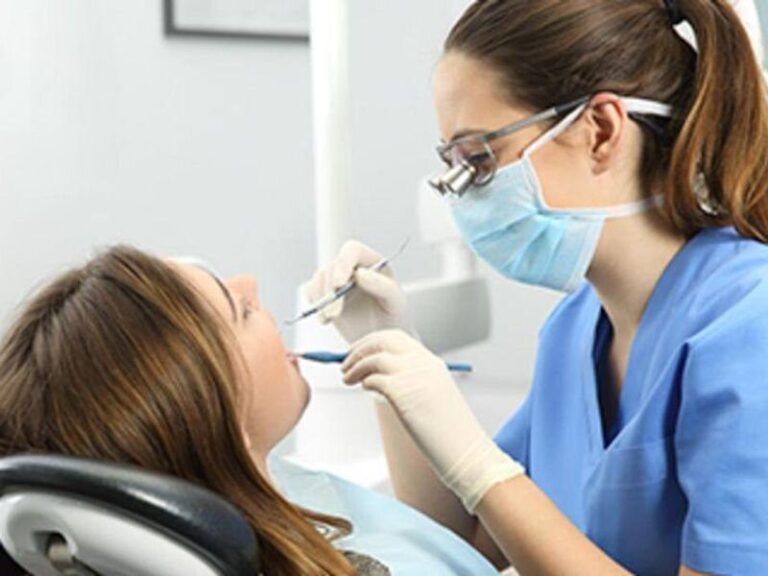Your dentist has given you the bad news: You need wisdom tooth removal surgery, a procedure no one looks forward to.
Want to know what to expect during and after surgery?
Experts offer some advice on why these “third molars” need to be removed, what happens during surgery and recovery, and the best foods to eat after your wisdom teeth are extracted.
Why should you have your wisdom teeth removed?
The American Association of Oral and Maxillofacial Surgeons (AAOMS) says wisdom teeth usually appear between the ages of 17 and 25. They can cause symptoms such as wisdom teeth pain. red, swollen or bleeding gums; bad breath? and you have difficulty opening your mouth.
These extra molars can also crowd out your other teeth, be difficult to clean and impact, meaning they don’t fully develop or push through the gums. All of these can cause a number of problems, including:
- Damage to nearby teeth
- Infections
- Loose teeth
- Gum recession and periodontal disease
- Loss of teeth and bones
- Tooth decay (caries)
Crooked teeth can also be a problem, according to Dr. Louis Rafettoformer president of AAOMS.
“It’s almost like musical chairs, where, you know, when you’re a kid … they stop playing music, and there’s less chairs than kids to sit in. Well, with the teeth, when the jaw stops growing, then that’s the end of it. of room available for teeth to erupt,” he explained.
In addition to these issues, extreme pain, mouth cysts, and bloodstream infections may develop for about 90% people who have at least one impacted wisdom tooth.
The AAOMS states that it may be beneficial to remove all of your wisdom teeth as early as possible to avoid these problems.
“I think it’s actually probably more appropriate to say that once you reach the age of 18, you should seek an opinion that will include an x-ray image of the teeth so that an assessment can be made as to whether or not [wisdom teeth] it will eventually come to your mouth,” Raffeto noted.
What happens with wisdom tooth removal surgery?
Your wisdom teeth removal surgery begins with an examination. The AAOMS explains that this helps your surgeon determine the position of your wisdom teeth, whether they are impacted and how far the roots have grown.
Rafetto said one of the reasons he recommends getting this test done by age 18 is that your wisdom teeth roots aren’t fully developed at that age and the surrounding bone is less dense.
“You would like to do it [surgery] before the roots are too long and rough — you want to remove the teeth at a time when the roots are usually half to two-thirds of the way through in growth,” he said. “That way, they’re easier to remove with better healing and less chance of complications.”
During surgery itself, or you will be given anesthesia or sedation for pain. Incisions will be made to remove gum tissue from impacted teeth and any bone covering the tooth will be extracted.
What is wisdom tooth recovery like?
After your wisdom teeth are removed, the tissue around the gums and sockets that previously held your teeth will be sensitive, according to AAOMS. You may experience some pain at the extraction site, along with swelling and mild discomfort.
To avoid painful dry skin and other complications after wisdom tooth removal surgery, AAOMS recommends:
- Eating a soft food diet
- Avoiding smoking is critical, according to research recently published in JAMA Network Open warns
- Avoid brushing the extraction area during the first 24 hours
- Using a manual toothbrush
- Taking all prescribed medications according to schedule
- Avoid using straws for 24 to 48 hours after surgery
- Using only prescription antibiotic mouthwashes and not over-the-counter varieties
Rafetto said patients should also make it a priority to “keep ice applied to the side of the face where the teeth were removed as much as possible for the first 48 hours. That really keeps the swelling to a minimum.”
What can you eat after wisdom teeth removal?
Because harder foods like nuts, seeds, and granola are off the table during recovery, many people wonder what to eat after wisdom teeth removal.
“People sometimes … just go to liquids like jelly and pudding and applesauce and things like that,” Rafetto said. “I tend to steer people toward things like Italian food and noodle-based dishes or rice-based dishes, or things like omelets and breakfast foods like waffles and pancakes, things that don’t require a lot of effort.”
How long should this diet last?
“I’d say two days, and most of them are back to eating close to a normal diet and close to normal activities,” she noted.
If you still have questions about your wisdom teeth, suggest getting a dental evaluation. “We call this active surveillance, which basically means just don’t ignore them!”
SOURCE: Louis Rafetto, DMD, oral surgeon, Wilmington, Del., past president, American Association of Oral and Maxillofacial Surgeons
Copyright © 2023 Health Day. All rights reserved.
Reference: Wisdom teeth removal: Surgery, recovery and what you can eat (2023 April 25) retrieved December 4, 2023 from
This document is subject to copyright. Except for any fair dealing for purposes of private study or research, no part may be reproduced without written permission. Content is provided for informational purposes only.


